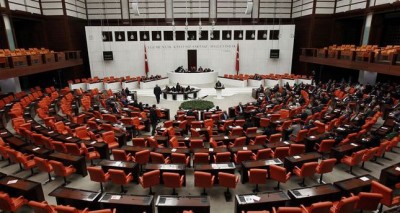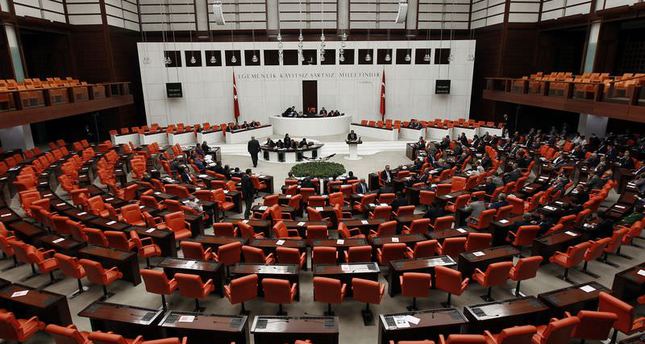
The 298 to 98 vote took place as Isis fighters moved perilously close to the Syrian Kurdish town of Kobani, which they have been advancing on for several weeks, under the watchful eyes of Turkish troops just across the border.
To many commentators, their relative inaction in the battle for the border town highlighted Ankara’s reluctance to engage in a direct fight against Isis, despite US pressure for Turkey to step up its role in the coalition against the jihadis.
The Syrian Observatory for Human Rights said Isis fighters were only a few hundred metres away from Kobani and estimated that as many as 300,000 had fled the area. It said many civilians were refusing to leave, and warned of the potential for a massacre if Isis entered the town.
The US-led coalition has launched several air strikes on Isis positions around Kobani in the past week, but Kurdish fighters complain they have not been enough to stem the offensive. If Isis is able to take the city, it would be a symbolic blow to the coalition’s strategy.
The Turkish parliamentary resolution combines, renews and expands two existing authorisations to use force in Syria and Iraq that were previously approved in the wake of tensions with the Syrian regime and the militant Kurdistan Workers’ party, or PKK, which is headquartered in the northern Iraqi mountains.
Ismet Yilmaz, defence minister, cautioned that the resolution’s approval did not mean military action was imminent.
President Recep Tayyip Erdogan suggested at the UN in New York last month that Turkey could provide military or logistical support to the anti-Isis coalition, but he has since has given greater emphasis to what he sees as the limitations of the US campaign.
“Turkey is not a country in pursuit of temporary solutions,” he told the Turkish parliament this week.
“A decisive struggle against all terrorist organisations in the region should be achieved and Turkey’s proposals and warnings should be taken into consideration. Otherwise, tonnes of air bombs will only delay the threat and danger.”
In particular, Turkey has renewed calls for a no-fly zone in Syria – which would imply extending the fight to the government of President Bashar al-Assad – or the establishment of safe zones along the border, which could require ground troops.
Such steps would be hugely risky without the participation of the US, which has given no indication it is considering either measure.
“In principle, a security zone within Syria could relieve the pressure of more refugees coming to Turkey to add to the 1.5m in the country already,” said Marc Pierini, a former EU ambassador to Turkey now at Carnegie Europe. “But by the time you got an international agreement on such a zone, it would be too late, so I just don’t see the value of the proposal any more.”
Mr Pierini argued that a more significant debate was whether Ankara would allow armed flights out of the nearby US base in Incirlik, southern Turkey, reducing the time and cost of an air campaign that could go on for months.
Some Turkish officials say such a step is unlikely, although Turkish reports yesterday suggested Incirlik could provide logistical support.
Financial Times


Leave a Reply
You must be logged in to post a comment.